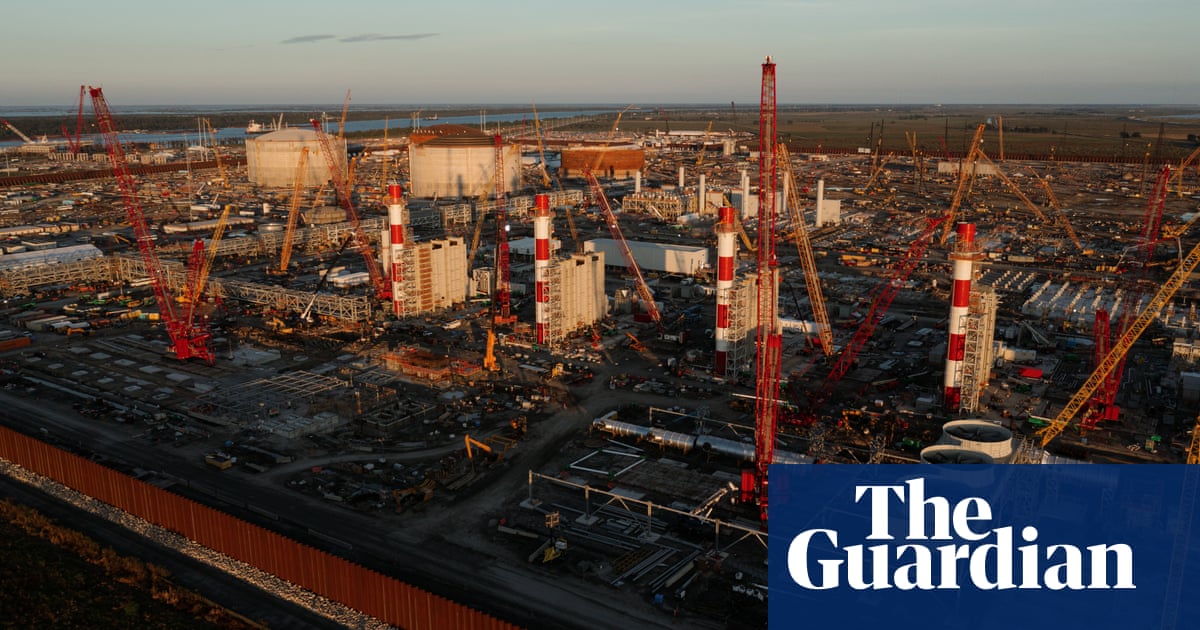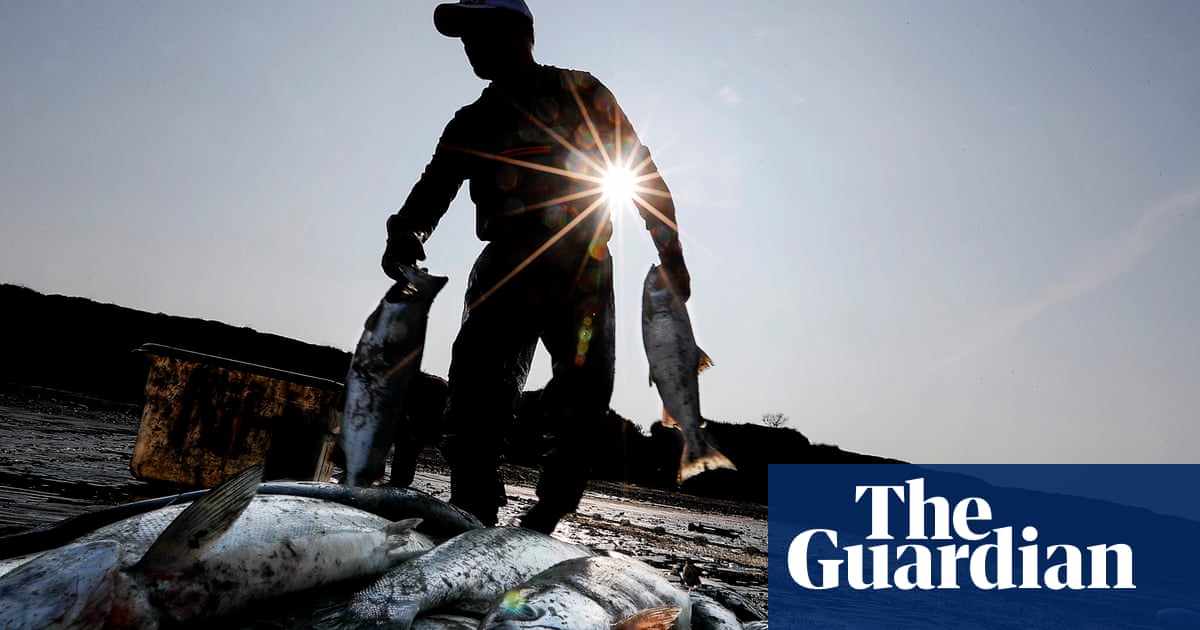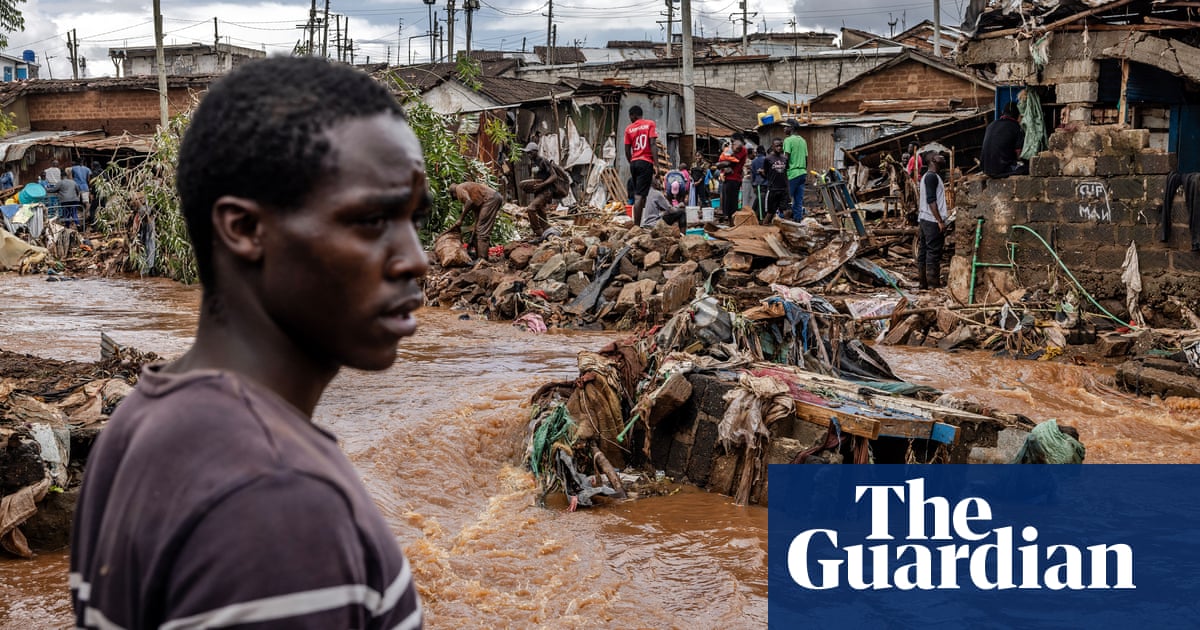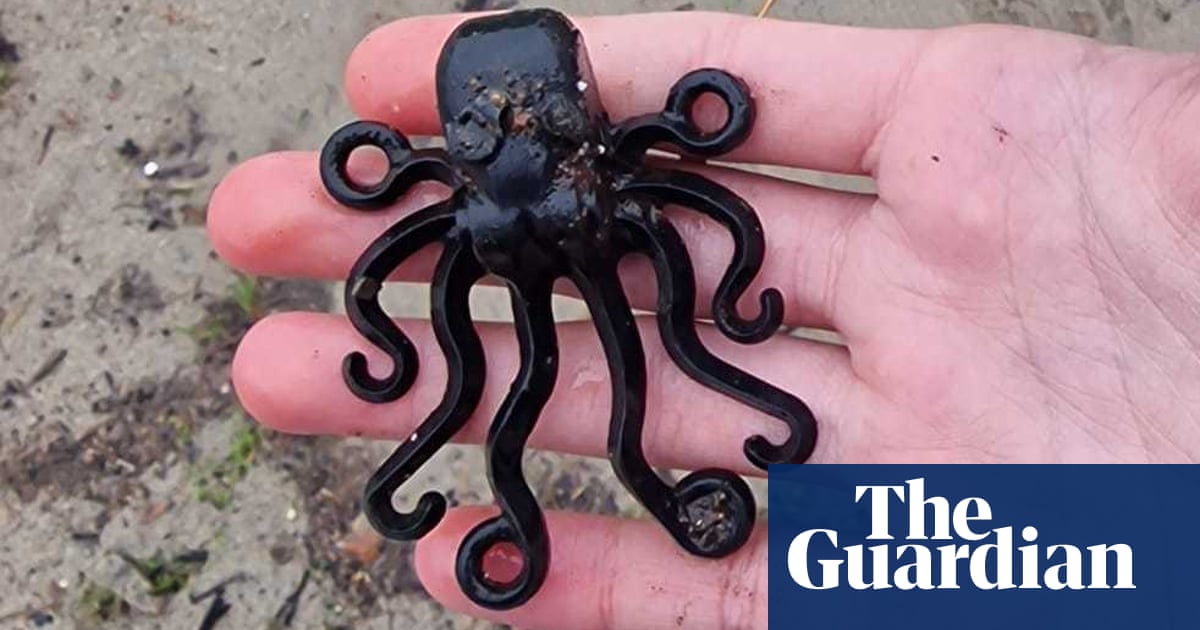A fossil fuel plant is leaving Louisiana families with ‘barely enough water for your toothbrush’ | Louisiana


Katie Mazarac just wanted to give her daughter a bath.
It was late summer evening, and the small Louisiana fishing community where she and her then 18-month-old live had been plagued by water issues for months. Saltwater from the ocean had been creeping up the Mississippi River since June, making the water in her town undrinkable. At one point, Mazarac had resorted to bathing her daughter in a reusable tote bag, using gallons of bottled water.
By August, Mazarac was used to saltwater coming out of her faucets. But that night, she turn on the bathtub faucet and barely any water came out at all.
“I called my mom, because I thought maybe a water line busted in my house,” she said.
But it wasn’t a broken water line, and it wasn’t just her house; it seemed all of Venice, Louisiana, was dealing with low water pressure, her mother said. “I was just out of the loop, because I hadn’t been on my phone. But she was like: ‘Everybody’s complaining about it right now.’”
This happened at least five more times before October, said Mazarac. The sudden loss of water disrupted personal lives and businesses in Plaquemines parish, a coastal community at the mouth of the Mississippi River. Local leaders told residents to use less water whenever possible.
But all the while, an oil and gas company next door continued drawing millions of gallons of water from the municipal water supply, to construct one of the country’s largest fossil fuel projects ever built.
Public records obtained by the Guardian reveal that in some months between May and October of 2023, the liquefied natural gas (LNG) producer Venture Global used up to a quarter of all water in Mazarac’s beleaguered district.
“We’re being told to conserve water,” resident Jordan Biggs said in September, “but Venture Global is getting to use all the water from our pumping stations to build cement for their big plant. And it’s just really disheartening.”
‘Look for basic human need first’
Venture Global, which is on track to rival Qatar as one of the world’s leading LNG exporters, is not building just another oil and gas project: the massive, multibillion-dollar export terminal in Plaquemines parish is the highest-financed LNG project in history. Amid a historic LNG boom, Venture Global is positioning itself to be the country’s leading LNG exporter, and the new 630-acre (255-hectare) site will be one of its largest terminals.
Construction began on the export terminal in 2021. The project has forged ahead despite Venture Global’s other Louisiana terminal racking up hundreds of permit violations, and even as its own clients, such as BP and Shell, pursue the company for reneging on contracts (CEO Michael Sabel told the Wall Street Journal last month that the company is too “busy winning” to worry about the complaints).
In coastal Plaquemines parish, drought contributed to periodic water pressure issues last year from June to November. That in turn shut off air conditioners and hot water heaters, threatened to break machinery, and sometimes forced schools and the local daycare to close.
In September, a student told local news channel WDSU they’d been out of school three times the previous week due to water issues, and couldn’t flush toilets or wash their hands. High school student Emma Hotard said that during the outages, “the most difficult part was the AC”, since low water pressure meant the chillers didn’t work amid Louisiana’s hottest summer ever.
“Some days at school were extremely hot,” Hotard said. “Trying to do work in the heat was very frustrating for everyone.”
Jeff DiMarco, head of the Plaquemines public service department, confirmed in an October interview that Plaquemines’ water demand was exceeding supply. He added that the upriver treatment plant was “at maximum capacity” and being pushed to its limits.
Asked about the LNG terminal’s water use exacerbating water shortages, DiMarco said he didn’t know Venture Global’s usage rates offhand.
Public records confirm that Venture Global was, in fact, consistently the largest consumer of water in the Port Sulphur water district. Venture Global was the top commercial water user in the district in July, August and September. Venture Global’s only project in Plaquemines so far has been construction of its LNG terminal.
But the proportion of the local water supply used to fuel construction of the LNG terminal could be even higher when considering the local companies providing services for Venture Global.
For example, a concrete company has consistently been the second highest commercial user of water in the neighboring Belle Chasse water district. An employee of the concrete company at that address confirmed that their primary client in Plaquemines parish is Venture Global.
John Sabo, a water resources expert at the Bywater Institute at Tulane University, echoed the sentiments of some residents, saying: “Whenever you have a water shortage, you have got to look for basic human need first.”
Summer effects
While construction on Venture Global’s new terminal soldiered on, residents said that their water wasn’t potable even as their water bills increased.
On 14 August 2023, the parish government issued “an urgent plea” on its official Facebook page, addressed to “all residents, requesting their immediate engagement in curbing their water usage”. Citing “a surge in water demand”, the notice asked residents to take shorter showers, reuse water and “postpone non-essential activities that require high water usage”.
That same month, Venture Global used over 1m gallons (3.8m liters) of water, or 13% of the water in the district.
In fact, the proportion rose as the crisis deepened. In September – when South Plaquemines high school closed for multiple days due to low water pressure – Venture Global used 24% of all the water consumed in the shared water district.
after newsletter promotion
Construction on Venture Global’s LNG terminal has been a highly water-intensive process – even higher, it seems, than the company initially estimated. In October, Venture Global used over 3.5m gallons (13.2m liters) of water according to public records, suggesting the company exceeded the maximum projected use of 100,000 gallons (379,000 liters) of water per day reported in their environmental assessment.
In a 15 October 2023 letter to the Federal Energy Regulatory Commission (Ferc), local advocates urged the commission to deny a certification for Venture Global, as their “industrial use of water is unconscionable given that local people do not have water for our basic needs”.
But a few days after the 15 October complaint, parish president Keith Hinkley wrote to Ferc in response, saying that “Venture Global’s water consumption from the Parish supply has been truly insignificant” and that the company has been “a great neighbor”.
The next day, Venture Global received Ferc approval to increase their workforce and construction schedule.
In all likelihood, construction of the LNG terminal has already surpassed the maximum total of 11m gallons (42m liters) of water the company predicted in its environmental impact statement to Ferc. From May to October 2023, Venture Global used at least 10m gallons (39m liters) of water.
This overage becomes much more significant when considering water used by other companies for the terminal’s construction, and the project’s thousands of construction workers.
If the water used by the concrete company in neighboring Belle Chasse can be attributed to Venture Global, then the terminal construction project has used 25m gallons (95m liters) – more than twice its total projected use – in just six months.
Venture Global did not respond to a request for comment.
Effects on residents
From July to November, harbor workers in Buras, Louisiana, reported water pressure issues that threatened to damage equipment, like the costly ice machines needed to keep their shrimp catch fresh.
“Because of the low water pressure – you can burn your whole machine up with that,” said dock worker Derek Ditcharo.
Though the water pressure improved towards the end of the year, through the late summer and fall, “you’d try to brush your teeth at the end of the night, and you barely have enough water to put on your toothbrush”, he said.
Water expert Shirley Clark explained that some of the construction processes, like dust suppression, can be much less water-intensive “if you aren’t in a rush” and are willing to use recycled water rather than pulling from fire hydrants, as Venture Global does. But the company has cornered the LNG export market by virtue of its breakneck construction speed: it claims to hold the record for fastest greenfield LNG terminal ever constructed.
Representatives of Plaquemines parish’s public works department and Inframark (the contractor handling water infrastructure) attributed the problems to extreme heat, drought and subsidence, which is breaking water mains. DiMarco said they’re “having conversations with consultants to increase new water plants or increase the capacity”. Those conversations, he said, include Venture Global. The company has received over $800m in tax breaks from the state .
By October, the parish repaired one of its downed treatment plants, easing pressure on the water supply.
But as the climate crisis accelerates, saltwater intrusion is expected to increasingly impact Plaquemines – and coastal areas across the country – while making severe drought more common. DiMarco indicated that the water problems will likely be occurring more frequently. He also said that Venture Global’s water demands are expected to grow.
DiMarco told the Guardian that the public services department had not been prioritizing residential users, nor putting restrictions into place, but instead was asking residents to conserve when watering their lawns: “Just keep it at a bare minimum while we get through this.”
Source link




